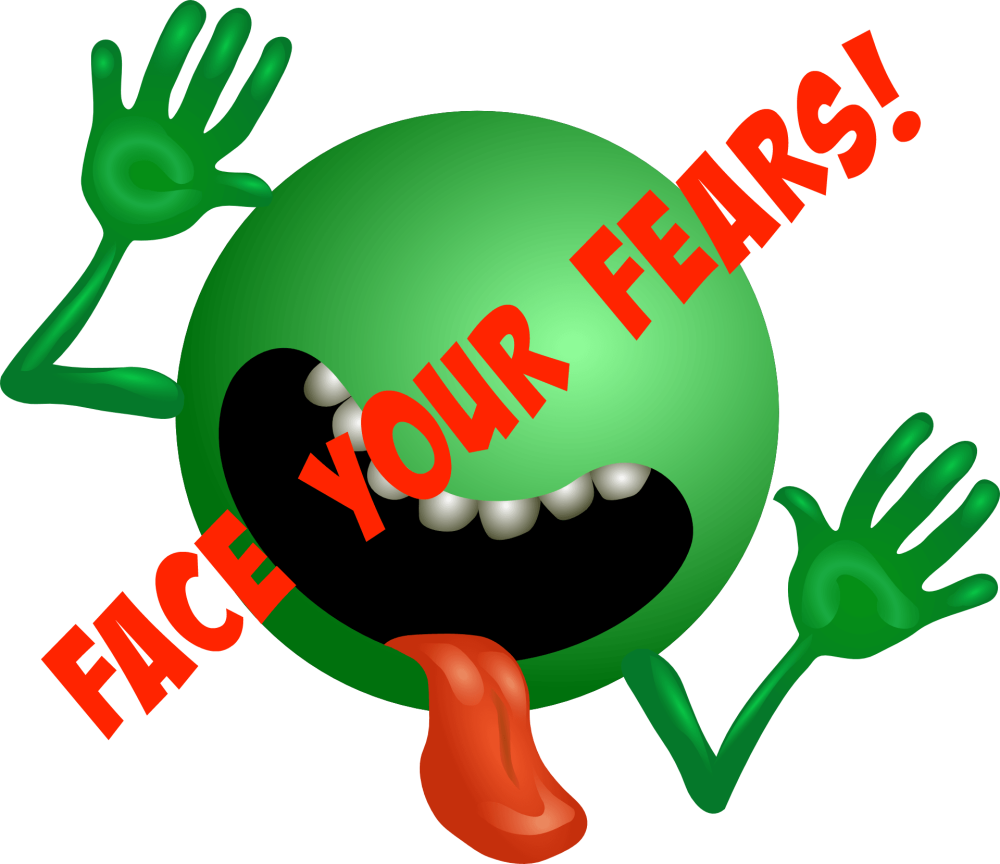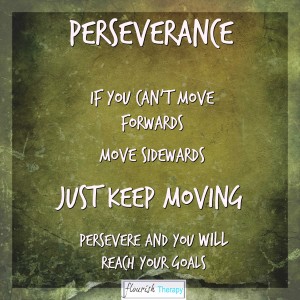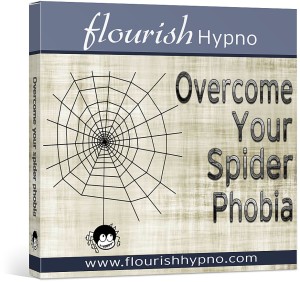How to Overcome Anxiety: Face your Fears
How to overcome anxiety: Face your fears
Want to know how to overcome anxiety? Facing your fears is an effective way to help you overcome fear. How much more do you think you would achieve in life if you didn’t give in to your fears? Just imagine if that fear didn’t exist? How much easier would achieving your dreams become?
If you had a magic wand
I often ask my clients who come to me with anxiety and fear related issues: If you had a magic wand and could magic away fear, what would you achieve? I can see them visibly settle into a more relaxed state as they imagine the goals they would achieve, the sense of satisfaction and confidence they would gain.
And when they have finished their often long lists of what they could see themselves achieving if they could overcome their fears, it becomes apparent just how much of a handicap it is when we allow fear to get in the way of living our best lives.
What would you do if your fear didn’t exist? …. Do it! Click To TweetRational and irrational fears
To begin with, it is useful to distinguish between irrational and rational fears. Rational fears are fears which are based upon our evolutionary survival response, such as keeping away from predators so we don’t become their breakfast, or feeling fear when you hear the bolt shear beneath you on the rollercoaster.
Irrational fears such as public speaking, fear of heights, fear of flying and many others have no real basis for their existence. The fear of public speaking often boils down to a fear of being humiliated in public and is often the result of how we were spoken to as a child, negative self-talk and negative visualisation; the fear of heights keeps you away from the edge of a cliff or building (which is quite handy!), but can also prevent you from exploring many wonderful experiences more than a few metres above ground level; the fear of flying is largely irrational as flying is still the safest way to travel.
Facing our fears is universal. It’s something we all have to do at some point in our lives if we want to develop and achieve our goals. Knowing how to overcome anxiety is a necessary life skill.
Everyone has fears, the difference is….
What makes one person successful and another a victim of irrational fears? It is our perception of the fear that creates the problem. Mr Successful faces similar fears to Mr Afraid, but Mr Successful tells himself that he can find the solution to overcoming his fears.
If you can’t move forward, move sidewards, but just keep moving. Click To TweetMr Successful might ponder each fear for a while until he realises that if he doesn’t take action to get over the fear, he will not be able to progress to the next level of his development. He makes decisions and takes action despite his fear, possibly gripped by anxiety about his every action, wondering if he is right or wrong. And yet, nevertheless, he acts.
Mr Afraid faces the same fear, but he decides to avoid the fear, skirting around it whenever it comes close to him. His life begins to close in on him, as his fear begins to spread to other areas and his progress slows down to a halt. He sees his friends and family moving on with their lives, making his stagnation seem all the more debilitating, which then leads to more fear and anxiety as he gets left further and further behind.
Habit of insecurity
All the while Mr Afraid is creating and strengthening a habit of insecurity, and bet your bottom dollar, without taking action, his insecurity will continue to grow as he begins to miss more and more opportunities in life.
Acknowledge your fears
To help combat our fears, first of all we need to acknowledge that the fear exists. It can help to write down your fears, and if you have several, group them together under sub-headings – you might be surprised to find that some of your fears have the same root fear.
Once you have a list, ask yourself for each item you noted:
- Why do I have this fear?
- How did I get it?
- Does it make sense for me to have this fear?
Sometimes the reason for why you have a fear will be difficult to uncover – it could have been learned from your parents, it could be something that caused it to be created while you were younger and had forgotten since, or were lacking adult wisdom to help you deal with as a child. Children’s thought processes are very black and white. They have little experience of the world and therefore take on board experiences at their face value.
Once you have answered these questions it will help to define the reasons behind the fear and will help you to establish a course of action to overcoming the fear.
Chunk it down
Once you have identified your fear(s), work out the stages that you would need to take to be able to face the worst part of the fear. Begin with something that causes you just a small amount of anxiety that you could achieve right now. Then list the stages upwards to the worst element of the fear.
In the case of a fear of spiders, you might be able to start with looking at or touching the image of a spider which causes you just a small amount of anxiety. The next step may be to study a spider in its web, moving up the list of stages progressively until you feel comfortable picking a spider up.
My spider phobia
I was once afraid of spiders (which I think was a learned behaviour from my childhood). I couldn’t even be in the same room as one. One day I was listening to someone being hypnotised for her spider phobia, and I must have experienced waking hypnosis, because the very next day, I picked up not one, but two, medium sized spiders at the same time, in my bare hands, and took them outside into the garden.
The same evening as the waking hypnosis I was watching a nature program where the presenter was prodding a black widow spider to make it leave its nest and then he placed it on his hand! I remember thinking at the time that he clearly had no fear of the arachnid and was fairly sure it wasn’t going to bite him, which I think helped reinforce my new belief that spiders weren’t sat in their webs waiting to jump out at us when we least expect them to.
So within 24 hours, my lifelong phobia of spiders was gone and now I am fascinated by them. They are one of my favourite subjects to photograph with my macro lens (which means I have to get close to them!)
If you would like to overcome your fear of spiders, you might be interested in listening to the Overcome Your Fear of Spiders Hypnosis download.
So take small steps, lean into your fear. Don’t pressure yourself to complete each stage as fast as possible. Take your time and keep it regular. Like all things, you’ll get better with practice. The more you do it, the more you’ll be able to do it easily.
Fear of heights
I don’t like heights much, particularly since I had my children. I think my hormones must have got all mixed up. I get the feeling as though I’m being magnetically pulled over the safety railings. It gives me a really strange feeling in my stomach and legs and I wish I didn’t have this, as one of my life goals is to do a bungee jump. However I can barely even watch them jump off the bridge, let alone get anywhere near to putting on a harness.
I visited the Eiffel Tower earlier this year and spent two hours or so looking over the edge of the first floor, then the second floor until eventually I could walk on the glass platform on the first floor and not feel as though I was going to go plummeting through to the concrete below. It took me all my courage to do it, but I did it and was really pleased with myself. I think I will still have that strange feeling next time I’m up somewhere high, but I know that with time, that weird feeling will lessen.
Exposure really does help. I’m proof of it. And If I can do it, so can you.
Fears come in all shapes and sizes
Fears can be of something we are not even aware of. It develops and spreads into areas of our lives, stunting our growth and restricting how far we set our goals. It can be like a kind of veil which we can look through, but by doing so, we miss the colours of life. How much do you miss by simply letting your fear restrict you?
Whatever your fear(s), you can take measures to help you overcome your anxiety and face your fears. One of the easiest and cheapest ways to do this is to ….
… Breathe
Deep breathing is one of the most effective and immediate ways of helping us to deal with fear. Deep breathing stimulates the vagus nerve which helps us to relax.
If we are relaxed we can’t be anxious at the same time. It is a physical impossibility. Click To TweetSo learn how to breathe deeply. Download your Deep Breathing Cheat Sheet and start taking action to knock fear on the head.
Progressive Muscle Relaxation (PMR)
PMR is a useful addition to follow on from deep breathing. Ideally find a comfortable and warm place to lie down while you perform PMR. You can work either from your head down to your toes or from your toes up to your head. The general idea of PMR is that you tense a muscle group for a few seconds and then relax, although when I use it for deep relaxation I omit the muscle tensing.
While you relax really focus on the sensation of the muscles feeling soft. Work your way up or down your body focusing on each individual muscle group, remembering to include the muscles of the face, as we hold a lot of tension in our foreheads, around our eyes and around our jaws.
You might like to download a Progressive Muscle Relaxation I use when preparing clients for hypnosis. It doesn’t include the muscle tensioning as I find this version more relaxing.
Meditate your way to success
Meditation is well known for its therapeutic benefits. It helps to clear a cluttered mind and to relax you. It has many psychological and physiological effects and is a powerful tool when combatting fear. Live and Dare have produced a detailed Benefits of Meditation Infographic which I would highly recommend you download.
A cutting edge and brilliant tool which helps you stay on track with your meditation practice is the Muse headband.
Muse is an electronic tool that helps you learn how to meditate and is ideal for busy minds. First of all it calibrates itself to your brain in normal active mode. Once you begin meditating (with the headband on), it uses the sound of the wind, to tell you how well your brain is achieving meditation. So if you start getting a busy brain, the wind starts whooshing up. While you’re relaxed and in the zone, the wind is calm and settled. For techno lovers it offers graphs and charts to show you how well you did in each session. It’s a fun and easy tool to use and helps you to get really good at meditating. You can use your deep breathing techniques to prove how well they calm a busy mind when the wind gets a bit stormy.
Fear or excitement?
What a lot of people don’t realise, is that fear and excitement are the same emotions. They are instigated by the same chemical messengers within the body. So what makes something exciting or frightening? Our perceptions.
Fear and excitement share the same chemical composition – it’s just the label you give it that makes the difference. Click To TweetIt is down to us as to how we shape our thoughts. Yep, it’s our responsibility for choosing how we are going to perceive something. The fear of public speaking isn’t a rational fear. As mentioned above, it’s likely to be a concern that you’ll make a fool of yourself, fluff your lines, fall over in front of everyone …. And really, if you did do one of these things, so what? Is it really that bad? Nope, but we give fear permission to develop within us.
Once we realise that we actually have control over the majority of what we decide to let ourselves be afraid of, it becomes much easier to control our fears.
Give your fear another name
When you begin to get fearful or anxious about something, take a few deep, slow breaths and while you are breathing deeply, ask yourself if you really are frightened, or whether you’re excited. Even better, TELL yourself that you’re excited about what is about to happen. Make a conscious choice and be positive and break free from the straightjacket that fear imposes upon you. Eradicate fear, don’t let it rule you. Start ruling your fear and you’ll get back into the driving seat. Approach your sensations of fear/excitement with a positive attitude.
Fake it
You may have heard the phrase, “Fake it until you make it”. This applies to the point above. Our physiology has such an important influence on how we behave and on how our emotions feel within our bodies. If you walk into a room with your head held high, shoulders back and smile, it’s going to be much more difficult to feel nervous than if you slip in unnoticed and slink to the back of the room to get a seat which you can bury yourself in.
The more you practice and get into the habit of faking your confidence, you’ll soon find that faking it becomes a thing of the past. What’s more, when you smile, people smile back at you, so spread the love while you’re building your confidence. Making other people happy is as therapeutic as being happy yourself.
Be positive
Fear tends to make us think of what might go wrong. We tend to focus on the negatives to the exclusion of the positives.
Guess who controls how you think? You do. So you have a choice.
You can think negatively and ruminate on all the possible scenarios that might go wrong and spell disaster for the rest of your time on earth, or you could simply choose to think about what might go right. Focus on the positives. You might meet new people that you can help, or can help you; you might learn something new that you can use in your career to help you grow and develop; heck you might even gain in confidence as you leave your comfort zone for a short while.
When creating your goals, your comfort zone is your worst ally Click To Tweet
Celebrate your success
When you achieve something, celebrate it. We are so good at being our worst enemies. Just imagine you are talking to your best friend who is telling you about something he/she did. Treat yourself in the same way. You’d congratulate your friend and you should congratulate yourself too.
It can be a risky business relying on other people for our self-esteem juice, so the more you can top up your own tank, the faster you’ll begin feeling worthy of your achievements.
Let others inspire you
Read books, listen to interviews or podcasts of people who have overcome extraordinary odds to help motivate you to live your best life. The power of the human spirit to fight for survival against all odds is something that constantly amazes me. Books which have inspired me and which might inspire you are:
I am Malala by Malala Youfsafzai
Man’s Search For Meaning by Viktor Frankl
A Long Walk Home by Judith Tebbutt
The Long Walk by Slavomir Rawicz
The Last Lecture by Randy Pausch
Of course there are many other inspiring stories out there. Those listed above are just a few of my favourites. If you have read any books you would recommend, please leave a comment in the comment box below.
Mix with people who inspire you
Try and make connections with people who inspire you. When you hang out with people who you want to be like, you’ll find your behaviour developing to align with theirs. You might even be brave enough to ask someone to help you and to be your mentor to help you achieve your goals.
Share your Fear
By talking about what fears you have may help others work out how to overcome their own anxiety as well as help you to find the best way for you to overcome your own fear. Often when we talk through a problem, we eventually find the solution to it.
20 seconds of courage
If you haven’t watched “We Bought A Zoo”, please do. Not only is it a feel-good movie, it has one of the best quotes ever about being brave:
Thanks Matt Damon!
Be kind to yourself
And on that note be kind to yourself, but nudge yourself in the right direction.
You’ll gain more than you could ever have hoped for. Face your fears and then stamp on them. You, and only you, can change how you perceive them, and that’s all it is, perception.
Remember, fear and excitement live in the same camp, they share the same chemical compounds, in the same amounts.
The only difference between the two emotions is the name you give them.
So make fear a thing of the past and live your best life with as much enthusiasm, thrill and excitement as you can muster.
You have this one life, so make it count.
What methods do you use to overcome your anxiety and face your fears?
[et_bloom_inline optin_id=optin_8]















